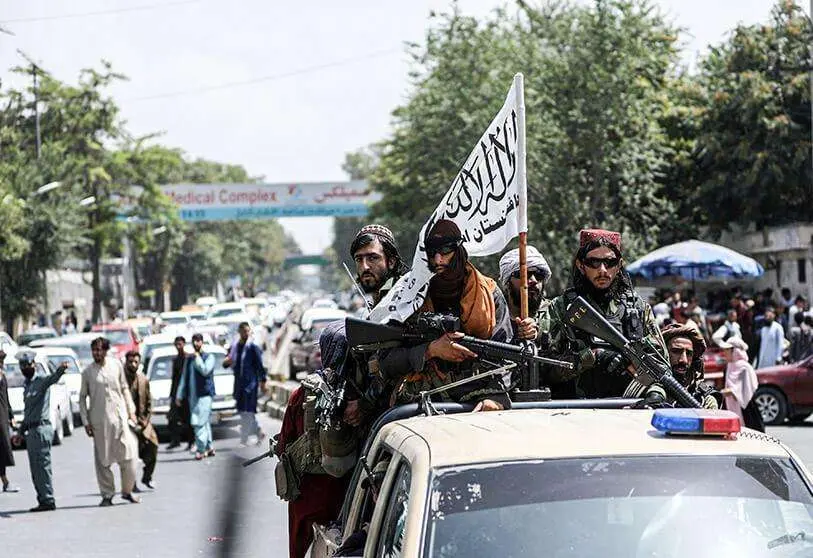Afghanistan, after the fall of Kabul

It has been a week since the Taliban seized control of the Afghan capital and entered the institutional heart of Kabul, the iconic presidential palace, with little resistance. The hours following the fundamentalists' takeover of Kabul were ones of utter bewilderment, anguish and despair. Images we thought would never be repeated took us back in time to the crushing defeat of the United States in Vietnam.
Kabul became America's Saigon, but in 2021. Almost 50 years separate Vietnam from Afghanistan, but the images in Kabul last Sunday showed that little had changed after almost half a century. Chinook helicopters flew over the US Embassy to evacuate its diplomatic staff in the face of the Taliban's unexpected takeover of the Afghan capital. Kabul's international airport was in chaos, packed with Afghans anxious to leave the country and whose only way out was through the airfield.

The then President of Afghanistan, Ashraf Ghani, fled the country to safety, now known to be in the United Arab Emirates, according to him to "avoid bloodshed", leaving a government vacuum that the Taliban did not hesitate to fill. A week later, the Islamic Emirate of Afghanistan is getting closer and closer to taking power, while the fundamentalists are holding talks for the formation of an "inclusive government", which could include former Afghan President Hamid Karza and the president of the High Council for National Reconciliation, Abdullah Abdullah.
Since taking Kabul, the Taliban have carried out a strong media campaign in which they have tried to send a message of calm to the public, as well as to the international community, showing a more moderate face. Many analysts agree that this is merely a strategy to gain international legitimacy and avoid being isolated again, as happened during the 1996-2001 Emirate, when they were only recognised by Pakistan, Saudi Arabia and the United Arab Emirates.

In the first official press conference after the fall of Kabul, the main Taliban spokesman, Zabihulla Mujahid, announced a "general amnesty" for all Afghans who worked for the previous government, and for all those who cooperated with foreign troops, and assured that they would not retaliate. In addition, the fundamentalists promised to ensure women's rights, but always within the framework of Islamic law. However, according to a United Nations report to which The New York Times has had access, the Taliban have drawn up a blacklist with the names of people they are looking for to interrogate and punish. "They go door to door to arrest or threaten family members with death if the people they are looking for do not turn themselves in," the US daily reported.
Throughout the week, especially on the occasion of Independence Day, Afghans have taken to the streets to protest against the Taliban regime by waving the tricolour flag instead of the Emirate's flag. The protests have reached as far as Kabul, where the leader of the feared Haqqani network, classified as terrorist by the United States in 2012, Sirajuddin Haqqani offered the first Friday prayer where he urged the unity of the Afghan people and hailed the return of the Islamic Emirate. In Afghanistan, and a week after the capture of Kabul, there is only one province that is resisting the fundamentalists' offensive. Panjshir, an area of valleys to the north of the capital, continues to fight and Ahmed Massoud and Vice-President Amrullah Saleh are calling on Afghans to take up arms against the Islamists.








